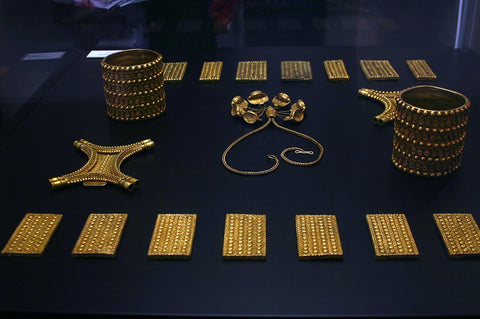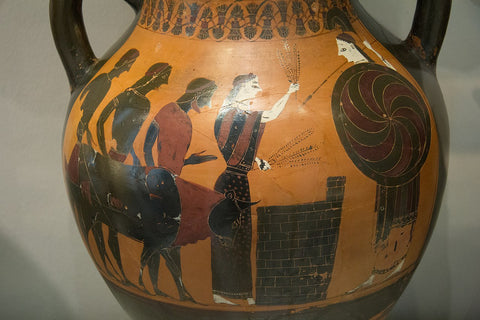Happy New Year!
By Owain Williams
As another year ends, another begins. We have entered 2023! No matter how you celebrated the New Year, I hope it was an enjoyable and memorable affair.
With the New Year, many people make resolutions, promises to themselves and others to continue good behaviour, end bad behaviour, and commit to improving themselves or to achieve a goal. People commonly resolve to learn a new language, to get fit or lose weight, or to cut back on food and drink.
As editor of Ancient History magazine, I have resolved to bring to you, the readers, a greater variety of cultures to explore on the page. It is very easy to think of the Ancient World as simply the Greeks, Romans, and Egyptians. However, there is much more beyond the shores of the Mediterranean, from the scorching sands of Libya, to the dark forests of northern Europe, from the vast plains of the Eurasian steppe, to the wide rivers of China. Indeed, there is still plenty left to explore within the Mediterranean, such as the North Syrian states, the Phoenicians, the Nuragic people of Sardinia, or Tartessos, the fabled land of silver just beyond the Pillars of Heracles.
Such a resolution seems simple when making it. However, there is a great deal of work to be done – mainly reading. To construct themes around new cultures and topics, we must first have a good grasp of the area in question, and such a grasp will take a while to achieve. So, really, my resolution is not to bring you such new areas of interest this year, as much as I would like to, but to start the process of developing these themes, reading about them and generating ideas. It is a hard life!
If you have any specific cultures or topics beyond Greece and Rome that have not been explored fully before, let me know!
Now, a bit of history.
New Year’s celebrations are nothing new. While the style of celebration or even when the celebrations occur has changed throughout the millennia, the activity has persisted.
One of the oldest New Year’s celebrations we have significant evidence for is that of the Akitu festival from Babylon. We know of the festival from a tablet from the Seleucid period of Babylonian history, a copy of an earlier tablet, likely dating from the Neo-Babylonian period (see here). While the text is fragmentary, with much of the latter half lost, we still know a great deal about the festival.
Taking place during the first eleven days of the month of Nisannu (late March – early April), the festival occurred at the time of the Spring equinox. Over the course of the festival, the Enuma Elish (also known as The Epic of Creation) was recited, perhaps even performed, a white bull was sacrificed, and the king was stripped of his insignia and ritually humiliated, being slapped by the priest (tears in the king’s eyes meant that Marduk, the principal deity of the festival with his son Nabu, was pleased).
A vase depicting the sacrifice of a bull to Athena ((c) Zde / Wikimedia Commons)
For the Athenians, the New Year fell in the month of Skiroporion (late June – early July), named after the Skira festival. The Athenians’ celebration of the New Year can be imagined as encompassing two complementary festivals, the Skira and the Buphonia.
The Skira festival was dedicated to Athena, Demeter, and Erechtheus. The procession, which included priests of Athena Polias and Poseidon-Erechtheus, travelled from the Athenian acropolis to Skiron, at the city limits on the road to Eleusis where there was a sanctuary of Demeter and Kore and one of Athena. The Buphonia, on the other hand, travelled back to the acropolis, where a bull belonging to the Kerykes family of Eleusis was sacrificed to Zeus. Thus, the two festivals can be seen as possibly ritually connecting the two poleis of Athens and Eleusis, and it might even be a method of re-enacting the mythical war between them.
A notable part of the Skira is that, similar to the Thesmophoria, women were free to leave the women’s quarters and gather at special female shrines, where they sacrificed and feasted at the men’s expense. It is at the Skira festival that the women in Aristophanes’ Ecclesiazusae plan to take control from the men of Athens.
Clearly, the transition from one year to the next has always been an occasion of great importance, regardless of when the year was meant to end and begin or how it was celebrated. Surely, it will continue to be for many generations to come.



